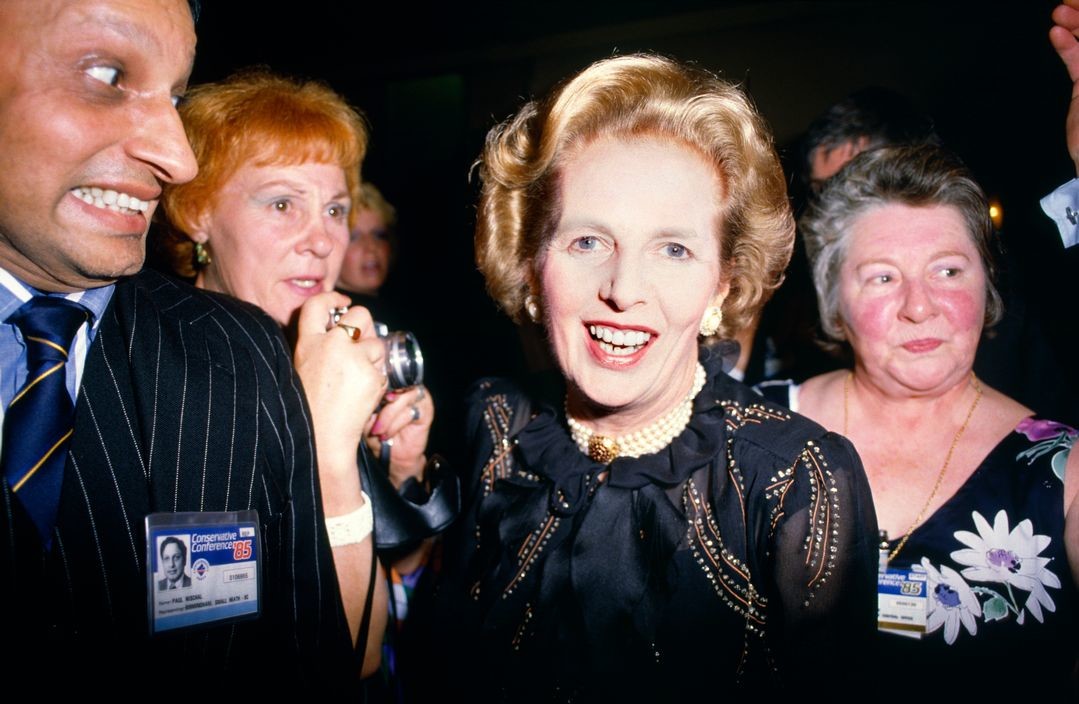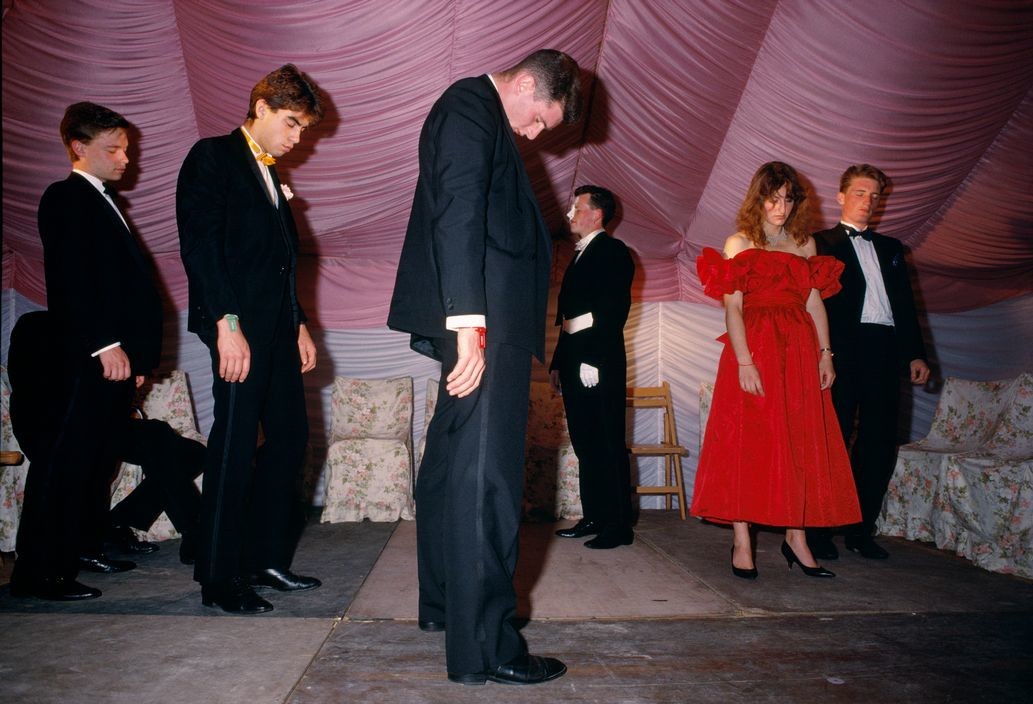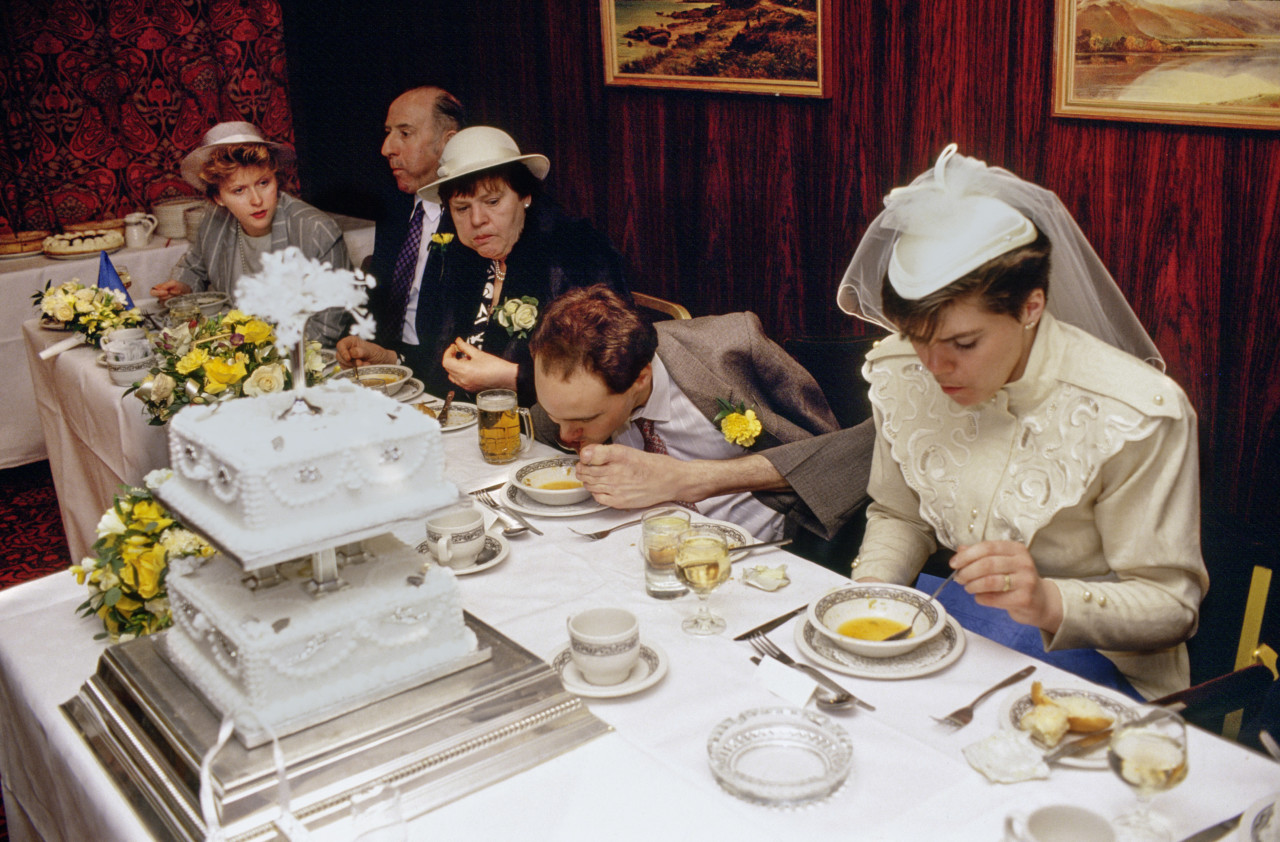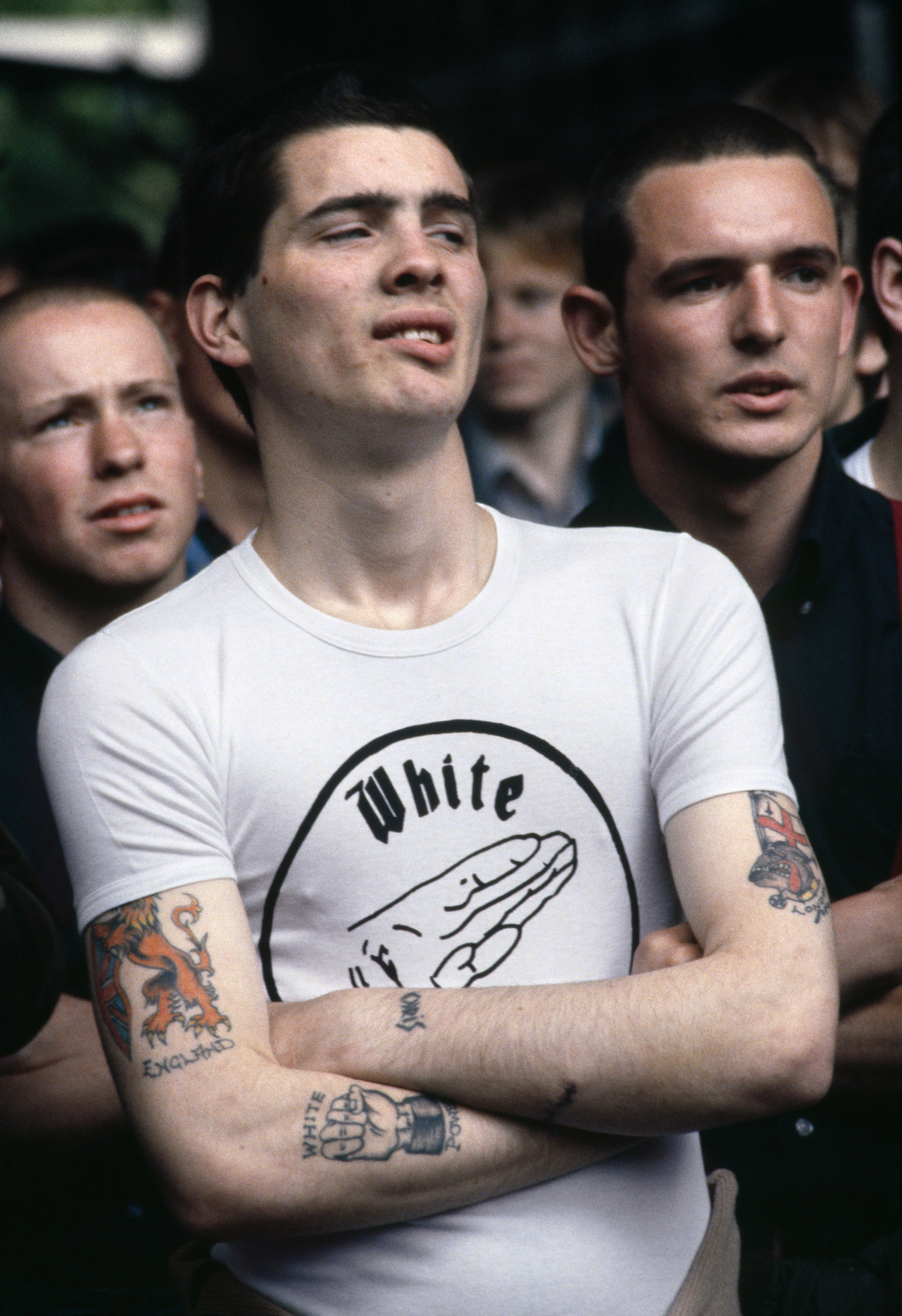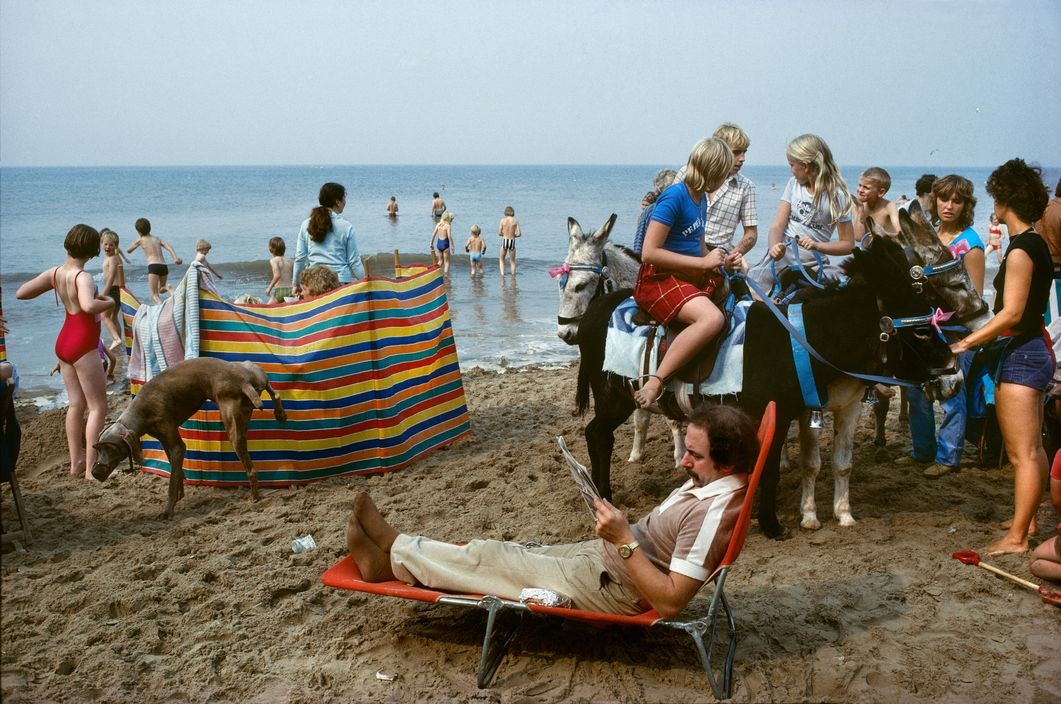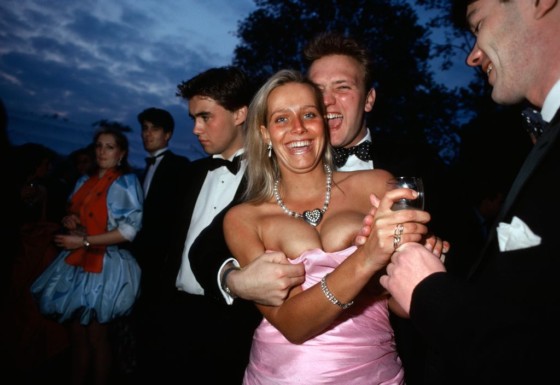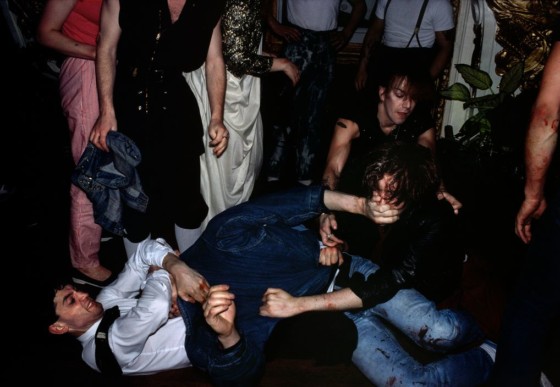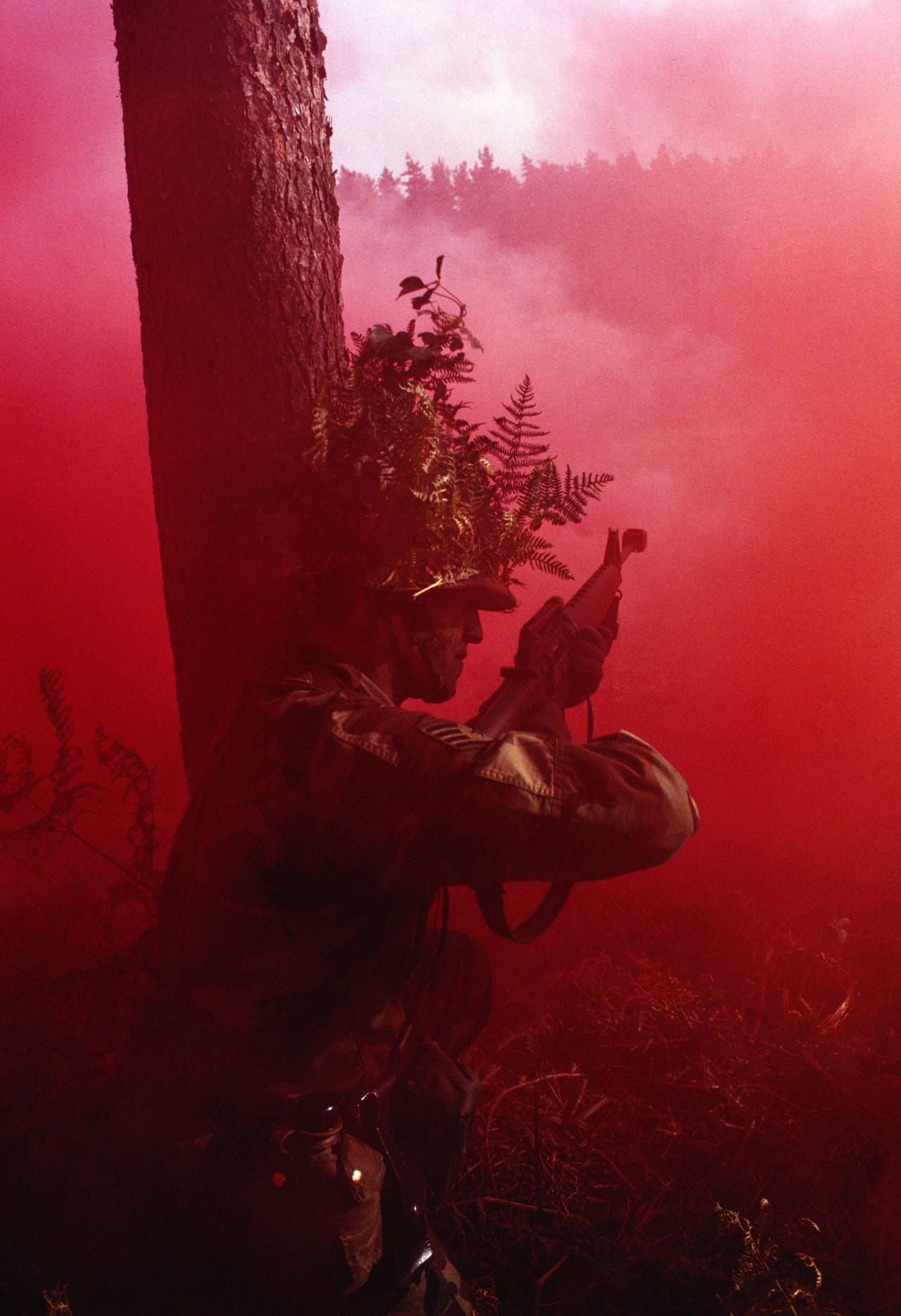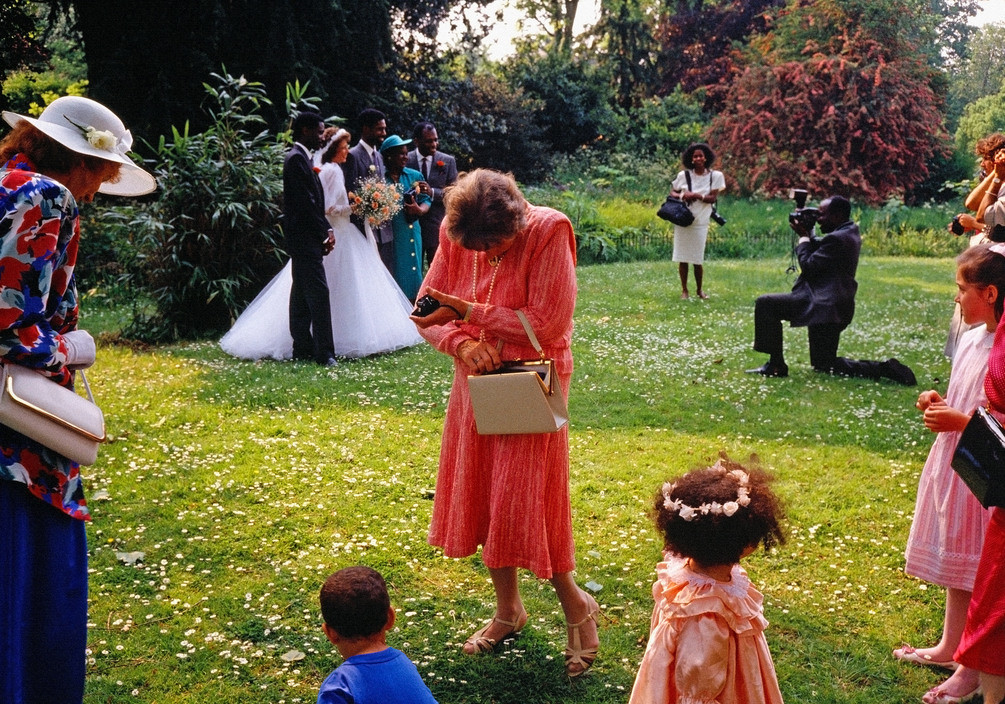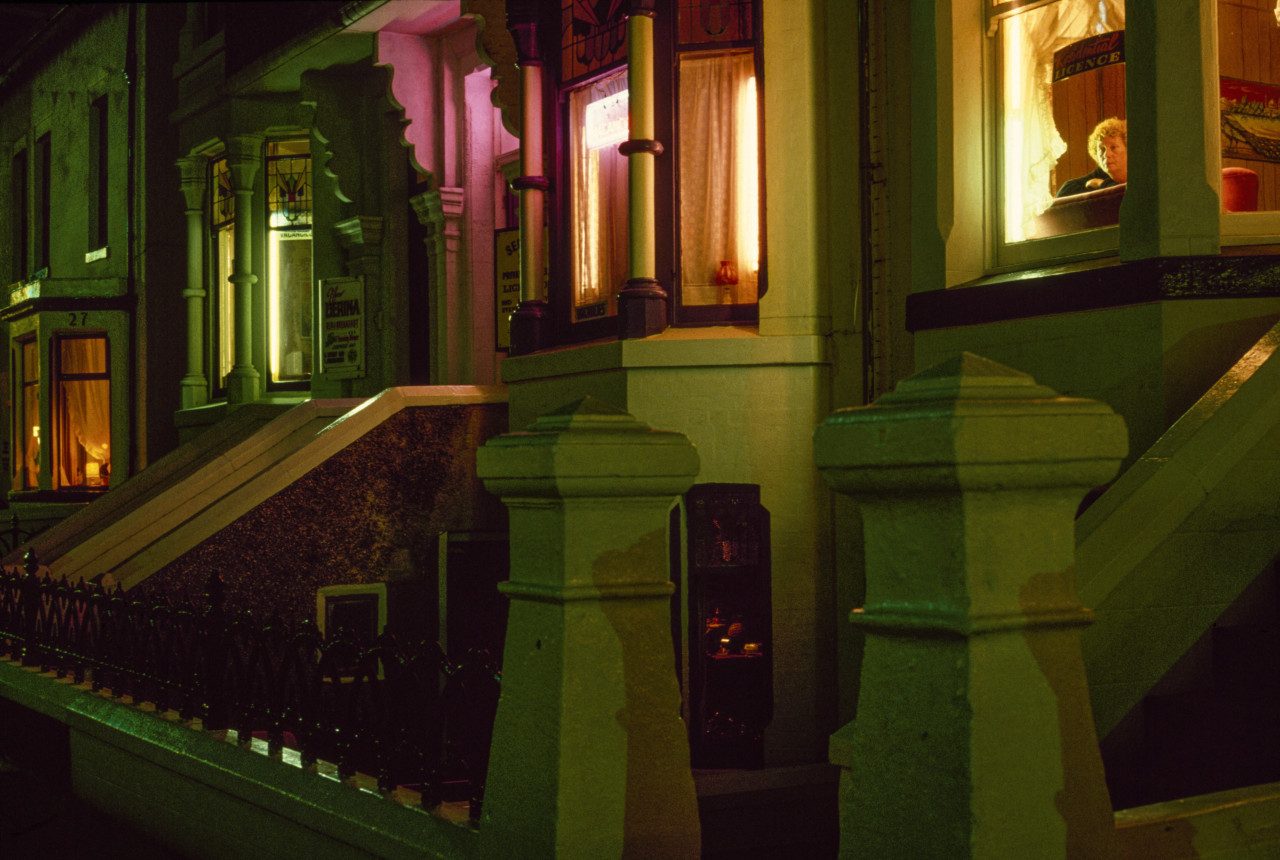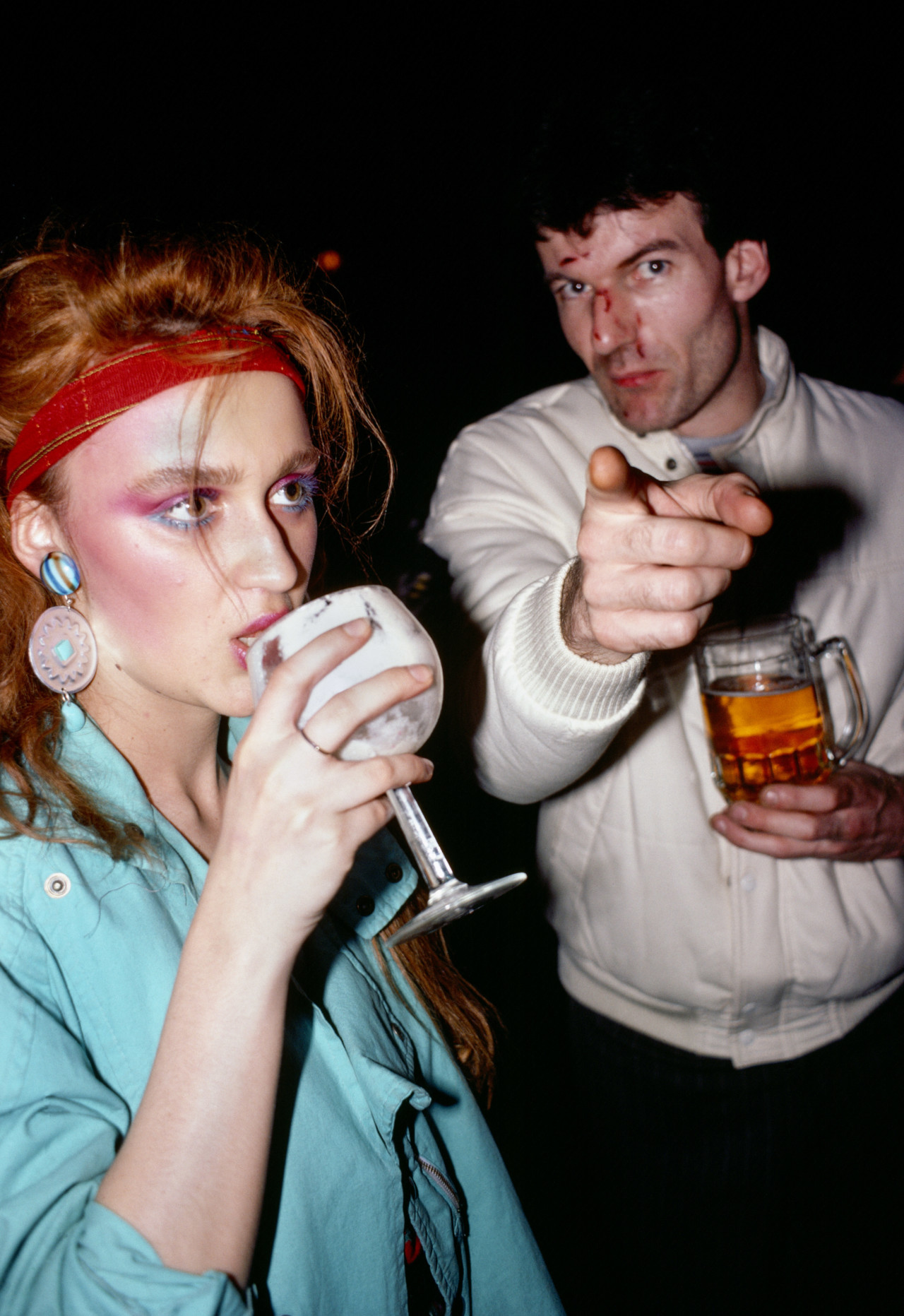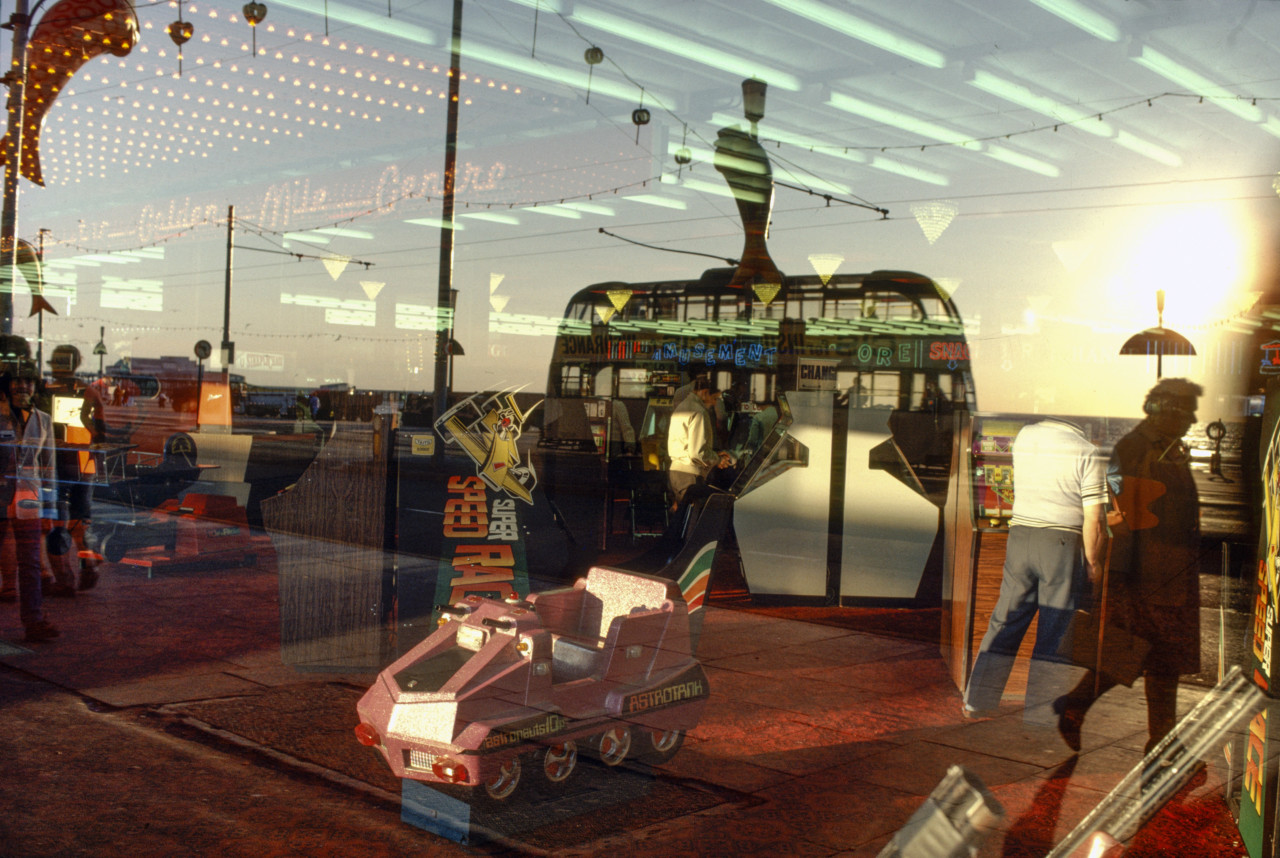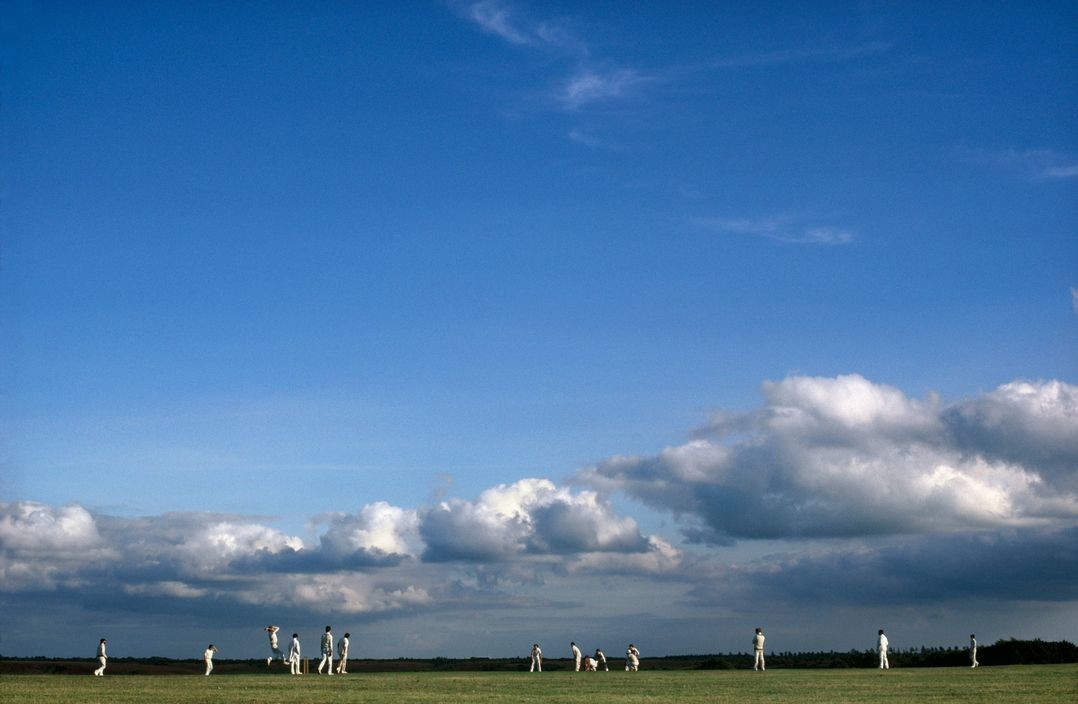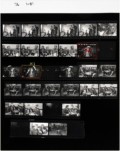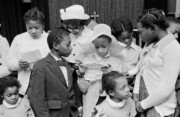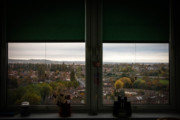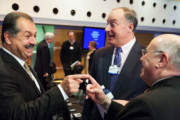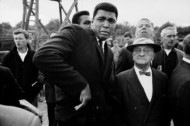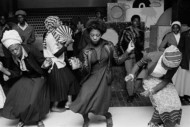The Pleasure Principle: A Picture of 1980s Britain at Play
Chris Steele-Perkins looks back at his era-defining images of the British and their recreational activities under Margaret Thatcher, now on show in London
“There is only one famous person in the book,” says Chris Steele-Perkins of his photobook The Pleasure Principle. “It was a deliberate choice as I wanted the book to be about ‘ordinary’ people. The one exception is Margaret Thatcher as she defined Britain in the 80s in a way nobody else did. I could argue that while she is clearly centre frame the photograph is as much about the acolytes and her effect on them, than it is about her. The photo was taken at the Conservative Party ball in Blackpool at the moment she made her entrance. I think I made a couple of frames before being pushed and elbowed aside by the mob of fans, press and security.”
Here, to mark an exhibition of the work at London’s Leica Gallery (February 21-April 13, 2020) Steele-Perkins looks back at the work, and discusses the images that, to this day, still capture his attention. To complete our time-capsule from the 1980s, the original introduction to the book, published in 1989, recalls the epoch-specific “public rituals we employ in the pursuit of happiness” from a hedonistic decade, and how the photographer navigated Britain from an almost-outsider’s perspective.
“When I was shooting The Pleasure Principle the magazine world was a major source of commissions and I proposed stories to magazines on subjects I wanted to include in the book,” remembers Steele-Perkins. “One was a proposal to Vogue to photograph the Spring Season of balls and parties. With a letter from Vogue and a second-hand dinner jacket nearly all doors were opened to me.”
"Looking back on the book I am more aware of how white it is"
- Chris Steele-Perkins
“Looking back on the book I am more aware of how white it is, and in fact how white Britain was. I wrote of my feelings about race in the introduction to the book [below], but things have changed, particularly in the larger urban areas. London is probably now the most multicultural city in the world. Casual racism is less prevalent and people of color are increasingly representing the nation at the highest levels of politics, sports, and culture. Some forward steps have been taken but they are fragile and risk being overturned in the rising tide of xenophobia centered around immigration and religion. This photo was taken in Brick Lane, the centre for the largely Bangladeshi community in East London. Various elements of the far right would hold rallies there, designed to provoke and insult. The Bangladeshis were seen as smaller and less militant than the Afro-Caribbean community in Brixton, so they were considered an easier target by the bully boys of the right.”
“Nothing dramatic happens here, there is no dramatic color or lighting, in fact it is all pretty banal, though there is a lot of detail, and that’s what I like. I was wandering about on the beach and wondered why this guy had decided to park himself here, so near to the donkeys? Was he going to eat his lunch, and what happened to his shoes? The dog sniffed into frame, performed and moved on, and so did I. I also like that people have asked me if I photoshopped the dog in.”
“I used to hang out a bit in the Camden Place in North London. It was a successful club, I think it was run by Steve Strange and Boy George used to turn up there. I was photographing a group of dancers, nothing special, and then they started making exaggerated pointing gestures towards me; a new dance? It took me a few seconds to register that they were gesturing to events behind me where a scrap was going on. The bouncers moved in, one tried to get my film. I slipped into the crowd. Some dancers never missed a beat.”
"In the small seaside town where we lived there was no ethnic community into which I could comfortably retreat."
- Chris Steele-Perkins
As Steele-Perkins remembers these very specific moments, the original introduction to the book offers a specific context to the work, showing the photographer at work in an environment that he is both inside and outside of, not quite belonging to this quest for a better future yet inextricably drawn to photographing it. Through his wry and detached lens, the 1980s are depicted with bemused humor; the brightly-hued outfits and pastoral scenery are both strangely familiar and relics of a time passed.
“I suppose that if you are not entirely white, you are never entirely British.
True, I was not black; I did not wear exotic costumes, but as a child I felt isolated. I am sure most kids have this feeling sometimes, but perhaps those who carry it longest and deepest are the ones driven to write, comment, photograph.
My father was English, a military officer who abandoned my Burmese mother, and brought me back to England at an early age. In the small seaside town where we lived there was no ethnic community into which I could comfortably retreat. I was seen as a ‘Chink’. So, in the heartland of Anglo Saxon England I forged the peculiar bonds that bind me to this country.
My childhood sensitivity to racial difference was not all-consuming, it merely exerted a steady pressure throughout those years. It was gradually buried in a dissolute and extended adolescence, and later made ridiculous by a growing sense of personal worth.
Resentments, which impeded my perception of worth in others, began to fall away, sometimes too late. People died before I was able to properly express to them the strength of my admiration and love. They were English.
So, gradually, the alienation – so much part of my childhood – faded. Not into complacency, but into a form of understanding; a larger, clearer picture of one’s society. My Country. Or so it seemed.
"A kaleidoscope of experiences, of often extraordinary power, could not help but change my relationship to England."
- Chris Steele-Perkins
Then I started to travel in the Third World.
Previously my work had been focused on particulars of Britain: poverty, sub-culture. I did not have any parallel reality against which to properly assess my position.
Exposure to other cultures, the massive shifts in relationships to people, the direct confrontation with the fact that things are different. Really different: worse, better, harder, more dangerous, shocking, fabulous, relaxed, harmonious… A kaleidoscope of experiences, of often extraordinary power, could not help but change my relationship to England.
I returned from the Third World looking at a broader framework than before, and with a touch of culture-shock. I could no longer retreat into the strangely reassuring idea that I was a victim (in some indeterminate way) of this society and so forego personal responsibility by posturing as an Outsider. For I could travel the world. I had become part of a larger community. I had shared food, hardship, laughter, friendship with people from widely different cultures. I had witnessed, photographed, and wept for the victims of the world. The starving, the dispossessed, the oppressed; those with no hope but their indomitable spirit.
Travel re-activated my buried sense of apartness from England, but not with the old feeling of oppression, for now I had a different perspective. Now there was a sense of almost anthropological detachment, a heightened sense of life’s oddity, and the peculiarly surreal forms it takes in England. This was coupled with an appreciation of those qualities of Englishness I had not properly realised that I valued, such as the traditions – however flawed – of democracy, a rough tolerance, a capacity for self-mockery, a stoutness of spirit. Yet the mindless aggression, the hypocrisy, the chauvinism that narrows horizons and twists perspectives became even more detestable.
During these last years my major output has been in photographing abroad. I have continued to photograph in England, but in a way that tried to deal with a sense, a feeling about the quality of this country. I was not interested in polemics, or a fashionable cynicism. I wanted to re-orientate myself. I found myself returning to the public rituals that we employ in the pursuit of happiness. For there we display our identity; as we would like it to be. There we make signals to each other about who we are, and about what we believe in. Looking through this haze of signals with a tangential glance, a curious eye, reveals some unintended things.
These are the photographs in this book. They are in one sense about our hedonism and our search for a better world. The operation of the Pleasure Principle. In another sense they are about me and the ambiguous feelings I have about England.”
– Chris Steele-Perkins, August 1989
Images from The Pleasure Principle will be on show at London’s Leica Gallery from February 20 to March 23, 2020.
This text was originally published as the introduction to Chris Steele-Perkins’ photobook The Pleasure Principle, Cornerhouse Publications, Manchester 1989


